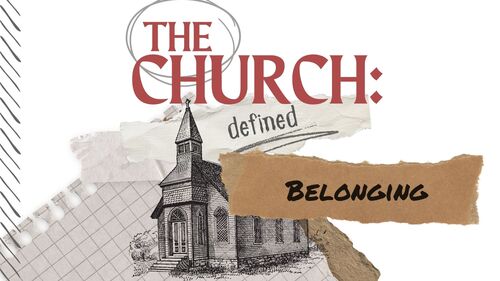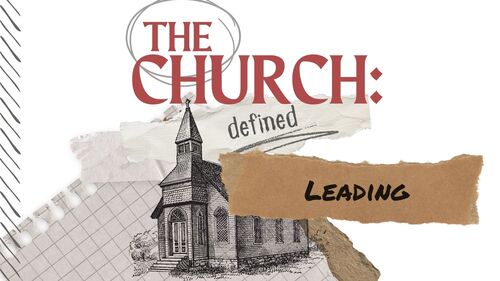August 2024

Welcome to Engage, your monthly guide to applying the Bible’s wisdom in practical ways while challenging you to think deeper. This blog is designed to help you connect biblical teachings with real-world situations.
Each month, we'll focus on a specific passage or theme, break it down into actionable insights, and ask thought-provoking questions that encourage you to dig deeper into your faith. Our goal is to make the Bible both accessible and relevant, offering guidance that inspires growth, reflection, and meaningful change.
Join us as we explore how to live out God's truth, one scripture at a time, and engage in discussions that challenge and strengthen our faith.
All of us in the leadership firmly believe that there is no substitute for consistent, intentional
engagement with the Bible and we hope that this is an opportunity to make that a habit in your life!
Each month, we'll focus on a specific passage or theme, break it down into actionable insights, and ask thought-provoking questions that encourage you to dig deeper into your faith. Our goal is to make the Bible both accessible and relevant, offering guidance that inspires growth, reflection, and meaningful change.
Join us as we explore how to live out God's truth, one scripture at a time, and engage in discussions that challenge and strengthen our faith.
All of us in the leadership firmly believe that there is no substitute for consistent, intentional
engagement with the Bible and we hope that this is an opportunity to make that a habit in your life!

- What does it mean to belong to the Church in a local sense? In a regional sense? In a global sense?
- How do you think what it means to belong to the Church today compared to what it meant in the early church?
One Body with Many Members (1 Corinthians 12:12-31)
12 Just as a body, though one, has many parts, but all its many parts form one body, so it is with Christ. 13 For we were all baptized by[a] one Spirit so as to form one body—whether Jews or Gentiles, slave or free—and we were all given the one Spirit to drink. 14 Even so the body is not made up of one part but of many.
15 Now if the foot should say, “Because I am not a hand, I do not belong to the body,” it would not for that reason stop being part of the body. 16 And if the ear should say, “Because I am not an eye, I do not belong to the body,” it would not for that reason stop being part of the body. 17 If the whole body were an eye, where would the sense of hearing be? If the whole body were an ear, where would the sense of smell be? 18 But in fact God has placed the parts in the body, every one of them, just as he wanted them to be. 19 If they were all one part, where would the body be? 20 As it is, there are many parts, but one body. 21 The eye cannot say to the hand, “I don’t need you!” And the head cannot say to the feet, “I don’t need you!” 22 On the contrary, those parts of the body that seem to be weaker are indispensable, 23 and the parts that we think are less honorable we treat with special honor. And the parts that are unpresentable are treated with special modesty, 24 while our presentable parts need no special treatment. But God has put the body together, giving greater honor to the parts that lacked it, 25 so that there should be no division in the body, but that its parts should have equal concern for each other. 26 If one part suffers, every part suffers with it; if one part is honored, every part rejoices with it.
27 Now you are the body of Christ, and each one of you is a part of it. 28 And God has placed in the church first of all apostles, second prophets, third teachers, then miracles, then gifts of healing, of helping, of guidance, and of different kinds of tongues. 29 Are all apostles? Are all prophets? Are all teachers? Do all work miracles? 30 Do all have gifts of healing? Do all speak in tongues[b]? Do all interpret? 31 Now eagerly desire the greater gifts.
15 Now if the foot should say, “Because I am not a hand, I do not belong to the body,” it would not for that reason stop being part of the body. 16 And if the ear should say, “Because I am not an eye, I do not belong to the body,” it would not for that reason stop being part of the body. 17 If the whole body were an eye, where would the sense of hearing be? If the whole body were an ear, where would the sense of smell be? 18 But in fact God has placed the parts in the body, every one of them, just as he wanted them to be. 19 If they were all one part, where would the body be? 20 As it is, there are many parts, but one body. 21 The eye cannot say to the hand, “I don’t need you!” And the head cannot say to the feet, “I don’t need you!” 22 On the contrary, those parts of the body that seem to be weaker are indispensable, 23 and the parts that we think are less honorable we treat with special honor. And the parts that are unpresentable are treated with special modesty, 24 while our presentable parts need no special treatment. But God has put the body together, giving greater honor to the parts that lacked it, 25 so that there should be no division in the body, but that its parts should have equal concern for each other. 26 If one part suffers, every part suffers with it; if one part is honored, every part rejoices with it.
27 Now you are the body of Christ, and each one of you is a part of it. 28 And God has placed in the church first of all apostles, second prophets, third teachers, then miracles, then gifts of healing, of helping, of guidance, and of different kinds of tongues. 29 Are all apostles? Are all prophets? Are all teachers? Do all work miracles? 30 Do all have gifts of healing? Do all speak in tongues[b]? Do all interpret? 31 Now eagerly desire the greater gifts.
- Why do you think Jews, Greeks, slaves and free were specifically mentioned as examples of people being baptized into one body?
- The Church body is made up of many members just like the human body. What things might happen if either the Church or a human body was made up entirely of one kind of member?
- In what ways do these verses point out differences in types of members of the Church?
- Do you think these verses are referring to individual congregations or the Church in a universal sense?
All Authority (Matthew 28:18-20)
18 Then Jesus came to them and said, “All authority in heaven and on earth has been given to me. 19 Therefore go and make disciples of all nations, baptizing them in the name of the Father and of the Son and of the Holy Spirit, 20 and teaching them to obey everything I have commanded you. And surely I am with you always, to the very end of the age.”
- What charge has Christ given to his disciples and does that charge still apply today?
- What promise does Christ make in these verses?
All are one in Christ Jesus (Galatians 3:28)
28 There is neither Jew nor Gentile, neither slave nor free, nor is there male and female, for you are all one in Christ Jesus.
- What do you feel like this verse is saying?
- What do you feel like it is not saying?
Unity in the Body of Christ (Ephesians 4:1-6)
As a prisoner for the Lord, then, I urge you to live a life worthy of the calling you have received. 2 Be completely humble and gentle; be patient, bearing with one another in love. 3 Make every effort to keep the unity of the Spirit through the bond of peace. 4 There is one body and one Spirit, just as you were called to one hope when you were called; 5 one Lord, one faith, one baptism; 6 one God and Father of all, who is over all and through all and in all.
- What does it mean to “bear with” one another?
- How does it direct us to do that “with love?”
None Lives not Dies to Himself (Romans 14:7-9)
7 For none of us lives for ourselves alone, and none of us dies for ourselves alone. 8 If we live, we live for the Lord; and if we die, we die for the Lord. So, whether we live or die, we belong to the Lord. 9 For this very reason, Christ died and returned to life so that he might be the Lord of both the dead and the living.
- What two groups are identified as those Christ is Lord over?
- Why did Christ need to die to accomplish this?
A Royal Priesthood (1 Peter 2:9)
9 But you are a chosen people, a royal priesthood, a holy nation, God’s special possession, that you may declare the praises of him who called you out of darkness into his wonderful light.
- This verse describes the Church as a race, a priesthood, a nation and a people. Why do you think those words are used to describe the Church?
We are God's Children Now (1 John 3:1-2)
See what great love the Father has lavished on us, that we should be called children of God! And that is what we are! The reason the world does not know us is that it did not know him. 2 Dear friends, now we are children of God, and what we will be has not yet been made known. But we know that when Christ appears, we shall be like him, for we shall see him as he is.
- Are there any implications to being “children of God” beyond him being our heavenly Father?
- What is meant in these verses when it says the world doesn’t know us?
- What is meant in these verses when it says we will see him (God) as he is?

- What types of leaders do we see in the Church?
- How does leadership within the Church differ from leadership within the world?
- What traits should we look for and find in our Church leaders?
Seven Chosen to Serve (Acts 6:1-7)
In those days when the number of disciples was increasing, the Hellenistic Jews[a] among them complained against the Hebraic Jews because their widows were being overlooked in the daily distribution of food. 2 So the Twelve gathered all the disciples together and said, “It would not be right for us to neglect the ministry of the word of God in order to wait on tables. 3 Brothers and sisters, choose seven men from among you who are known to be full of the Spirit and wisdom. We will turn this responsibility over to them 4 and will give our attention to prayer and the ministry of the word.”
5 This proposal pleased the whole group. They chose Stephen, a man full of faith and of the Holy Spirit; also Philip, Procorus, Nicanor, Timon, Parmenas, and Nicolas from Antioch, a convert to Judaism. 6 They presented these men to the apostles, who prayed and laid their hands on them.
7 So the word of God spread. The number of disciples in Jerusalem increased rapidly, and a large number of priests became obedient to the faith.
5 This proposal pleased the whole group. They chose Stephen, a man full of faith and of the Holy Spirit; also Philip, Procorus, Nicanor, Timon, Parmenas, and Nicolas from Antioch, a convert to Judaism. 6 They presented these men to the apostles, who prayed and laid their hands on them.
7 So the word of God spread. The number of disciples in Jerusalem increased rapidly, and a large number of priests became obedient to the faith.
- Why were these seven men needed?
- What duties were the twelve apostles giving up to address those needs?
- Why did the twelve apostles lay hands on these men? Is it more than symbolic?
Qualifications for Overseers (1 Timothy 3:1-7)
Here is a trustworthy saying: Whoever aspires to be an overseer desires a noble task. 2 Now the overseer is to be above reproach, faithful to his wife, temperate, self-controlled, respectable, hospitable, able to teach, 3 not given to drunkenness, not violent but gentle, not quarrelsome, not a lover of money. 4 He must manage his own family well and see that his children obey him, and he must do so in a manner worthy of full[a] respect. 5 (If anyone does not know how to manage his own family, how can he take care of God’s church?) 6 He must not be a recent convert, or he may become conceited and fall under the same judgment as the devil. 7 He must also have a good reputation with outsiders, so that he will not fall into disgrace and into the devil’s trap.
- What are the qualifications of overseers?
- Why must an overseer be thought well of by others?
Qualifications for Deacons (1 Timothy 3:8-13)
8 In the same way, deacons[a] are to be worthy of respect, sincere, not indulging in much wine, and not pursuing dishonest gain. 9 They must keep hold of the deep truths of the faith with a clear conscience. 10 They must first be tested; and then if there is nothing against them, let them serve as deacons.
11 In the same way, the women[b] are to be worthy of respect, not malicious talkers but temperate and trustworthy in everything.
12 A deacon must be faithful to his wife and must manage his children and his household well. 13 Those who have served well gain an excellent standing and great assurance in their faith in Christ Jesus.
11 In the same way, the women[b] are to be worthy of respect, not malicious talkers but temperate and trustworthy in everything.
12 A deacon must be faithful to his wife and must manage his children and his household well. 13 Those who have served well gain an excellent standing and great assurance in their faith in Christ Jesus.
- What are the qualifications of deacons?
- In what ways do the qualifications of deacons differ from overseers?
Qualifications for Elders (Titus 1:5-16)
5 The reason I left you in Crete was that you might put in order what was left unfinished and appoint[a] elders in every town, as I directed you. 6 An elder must be blameless, faithful to his wife, a man whose children believe[b] and are not open to the charge of being wild and disobedient. 7 Since an overseer manages God’s household, he must be blameless—not overbearing, not quick-tempered, not given to drunkenness, not violent, not pursuing dishonest gain. 8 Rather, he must be hospitable, one who loves what is good, who is self-controlled, upright, holy and disciplined. 9 He must hold firmly to the trustworthy message as it has been taught, so that he can encourage others by sound doctrine and refute those who oppose it. 10 For there are many rebellious people, full of meaningless talk and deception, especially those of the circumcision group. 11 They must be silenced, because they are disrupting whole households by teaching things they ought not to teach—and that for the sake of dishonest gain. 12 One of Crete’s own prophets has said it: “Cretans are always liars, evil brutes, lazy gluttons.”13 This saying is true. Therefore rebuke them sharply, so that they will be sound in the faith 14 and will pay no attention to Jewish myths or to the merely human commands of those who reject the truth. 15 To the pure, all things are pure, but to those who are corrupted and do not believe, nothing is pure. In fact, both their minds and consciences are corrupted. 16 They claim to know God, but by their actions they deny him. They are detestable, disobedient and unfit for doing anything good.
- Elders are called to rebuke. What does that look like in practice?
- In what ways do these verses describe the behaviors of the insubordinate?
- How can one profess to know God but deny him by works?
The Jerusalem Council (Acts 15:1-21)
15 Certain people came down from Judea to Antioch and were teaching the believers: “Unless you are circumcised, according to the custom taught by Moses, you cannot be saved.” 2 This brought Paul and Barnabas into sharp dispute and debate with them. So Paul and Barnabas were appointed, along with some other believers, to go up to Jerusalem to see the apostles and elders about this question. 3 The church sent them on their way, and as they traveled through Phoenicia and Samaria, they told how the Gentiles had been converted. This news made all the believers very glad. 4 When they came to Jerusalem, they were welcomed by the church and the apostles and elders, to whom they reported everything God had done through them.
5 Then some of the believers who belonged to the party of the Pharisees stood up and said, “The Gentiles must be circumcised and required to keep the law of Moses.”
6 The apostles and elders met to consider this question. 7 After much discussion, Peter got up and addressed them: “Brothers, you know that some time ago God made a choice among you that the Gentiles might hear from my lips the message of the gospel and believe. 8 God, who knows the heart, showed that he accepted them by giving the Holy Spirit to them, just as he did to us. 9 He did not discriminate between us and them, for he purified their hearts by faith. 10 Now then, why do you try to test God by putting on the necks of Gentiles a yoke that neither we nor our ancestors have been able to bear? 11 No! We believe it is through the grace of our Lord Jesus that we are saved, just as they are.”
12 The whole assembly became silent as they listened to Barnabas and Paul telling about the signs and wonders God had done among the Gentiles through them. 13 When they finished, James spoke up. “Brothers,” he said, “listen to me. 14 Simon[a] has described to us how God first intervened to choose a people for his name from the Gentiles. 15 The words of the prophets are in agreement with this, as it is written:
16 “‘After this I will return
and rebuild David’s fallen tent.
Its ruins I will rebuild,
and I will restore it,
17 that the rest of mankind may seek the Lord,
even all the Gentiles who bear my name,
says the Lord, who does these things’
18 things known from long ago.[c]
19 “It is my judgment, therefore, that we should not make it difficult for the Gentiles who are turning to God. 20 Instead we should write to them, telling them to abstain from food polluted by idols, from sexual immorality, from the meat of strangled animals and from blood. 21 For the law of Moses has been preached in every city from the earliest times and is read in the synagogues on every Sabbath.”
5 Then some of the believers who belonged to the party of the Pharisees stood up and said, “The Gentiles must be circumcised and required to keep the law of Moses.”
6 The apostles and elders met to consider this question. 7 After much discussion, Peter got up and addressed them: “Brothers, you know that some time ago God made a choice among you that the Gentiles might hear from my lips the message of the gospel and believe. 8 God, who knows the heart, showed that he accepted them by giving the Holy Spirit to them, just as he did to us. 9 He did not discriminate between us and them, for he purified their hearts by faith. 10 Now then, why do you try to test God by putting on the necks of Gentiles a yoke that neither we nor our ancestors have been able to bear? 11 No! We believe it is through the grace of our Lord Jesus that we are saved, just as they are.”
12 The whole assembly became silent as they listened to Barnabas and Paul telling about the signs and wonders God had done among the Gentiles through them. 13 When they finished, James spoke up. “Brothers,” he said, “listen to me. 14 Simon[a] has described to us how God first intervened to choose a people for his name from the Gentiles. 15 The words of the prophets are in agreement with this, as it is written:
16 “‘After this I will return
and rebuild David’s fallen tent.
Its ruins I will rebuild,
and I will restore it,
17 that the rest of mankind may seek the Lord,
even all the Gentiles who bear my name,
says the Lord, who does these things’
18 things known from long ago.[c]
19 “It is my judgment, therefore, that we should not make it difficult for the Gentiles who are turning to God. 20 Instead we should write to them, telling them to abstain from food polluted by idols, from sexual immorality, from the meat of strangled animals and from blood. 21 For the law of Moses has been preached in every city from the earliest times and is read in the synagogues on every Sabbath.”
- What specific issues were the Jerusalem Council needing to address?
- Do we have similar disputes today within the Church?
- How should we handle disputes within the Church?
Recent
Archive
2025
March
2024
May
June
July
August
September
October
Categories
no categories

No Comments